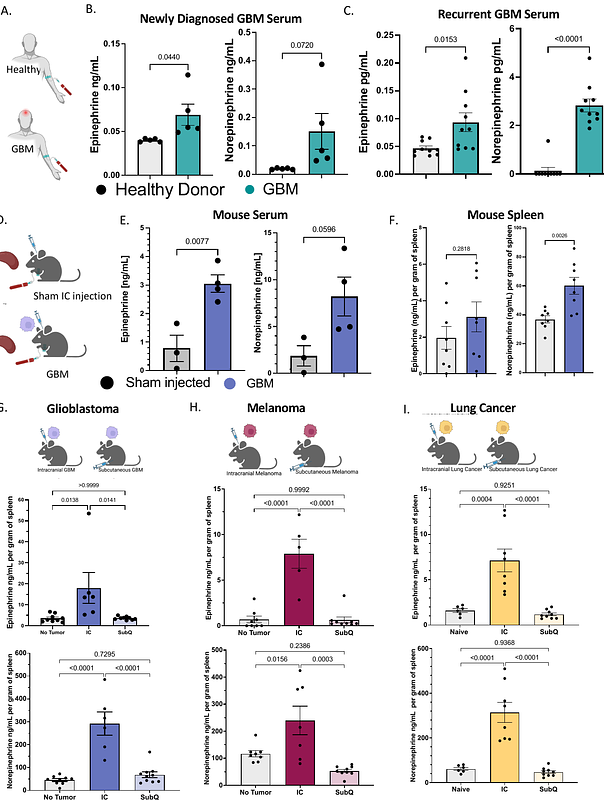Intracranial tumors elicit systemic sympathetic hyperactivity that limits immunotherapeutic responses

Intracranial tumors elicit systemic sympathetic hyperactivity that limits immunotherapeutic responses
Lorrey, S. J.; Wachsmuth, L.; Finlay, J.; Waibl Polania, J.; Hoyt-Miggelbrink, A.; Price, M.; Neff, C.; Cui, X.; Hawley, A.; Lerner, E.; Wilkinson, D.; Srinivasan, E.; Ostrom, Q. T.; Fecci, P. E.
AbstractIntracranial tumors present unique challenges for immunotherapy, which can include both local and systemic immune suppression whose mechanistic underpinnings are incompletely understood. Here, we reveal that tumors harbored intracranially elicit systemic increases in catecholamines and chronic sympathetic hyperactivity that drives T cell dysfunction and limits immunotherapeutic success. Conversely, treatment with {beta}-adrenergic receptor blockade increases NF-{kappa}B activity in immune cells, restores T cell polyfunctionality, modifies the tumor microenvironment, and licenses immune-based therapies in murine models of GBM to extend survival. Extended survival was also observed in GBM patients receiving {beta}-blockers for any indication, as well as in patients with melanoma and lung cancer brain metastases who received concomitant immune checkpoint inhibition and {beta}-adrenergic blockade compared to immune checkpoint inhibition alone. These data suggest roles for increased adrenergic activity in facilitating systemic immune dysfunction in the setting of intracranial tumors, specifically, and advance a role for {beta}-adrenergic blockade in licensing immunotherapeutic responses within the intracranial compartment.